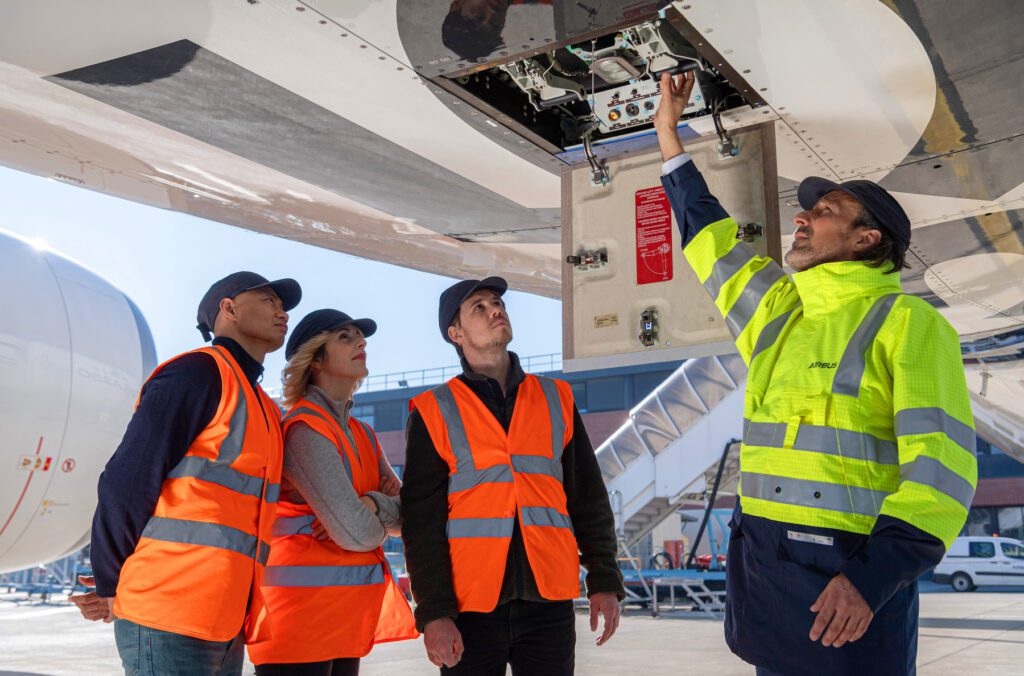
(Photo provided by Airbus | Photographer: A. Doumenjou)
A new report published by Airbus expects demand for commercial aircraft aftermarket services to return to pre-pandemic 2019 levels by next year.
The annual Airbus Global Services Forecast (GSF) analyzes projected growth rates in demand for new services over a 20-year period and how or what type of services will be needed to accommodate the continued growth of the global in-service passenger carrying fleet. Based on the number of flight cycles already recorded for commercial airliners in 2022, the forecast expects the industry to collectively spend $95 billion on aftermarket services in 2022—which would be a 21% increase from last year.
According to the forecast, aircraft maintenance and training are the two specific services that are most in demand.
“Major business opportunities for aftermarket players are being created due to operators seeking more resilience and flexibility in contractual conditions, prioritising fuel efficiency solutions, looking to ease maintenance bottlenecks constrained by current capacity and reinforced connectivity enablement,” Airbus writes in the report.
The GSF estimates that there are currently 23,500 aircraft—with 100 seats or more—in service globally. By 2041, that number is expected to more than double to nearly 47,000, with 39,000 new aircraft deliveries expected to occur during that time.
The projected growth rate of the in-service fleet will need an associated growth rate in personnel operating and maintaining those aircraft, including: 585,000 new pilots, 875,000 new cabin crew, and 640,000 new technicians, according to the report. Airbus estimates that there are currently 11 million professionals that work in aircraft aftermarket services.
Additionally, the report predicts that by 2041 there will be “four times more aircraft with in-flight connectivity for passengers” than there are in-service today.
“Accelerated digitalisation of operations and maintenance as well as a higher proportion of latest generation aircraft in service will lead to a massive requirement for new skills and job creation, leveraging new tools and ways of working in order to further increase our sector’s efficiency, reduce fuel consumption and emissions,” Philippe Mhun, Airbus EVP Programmes and Services, said in a statement.